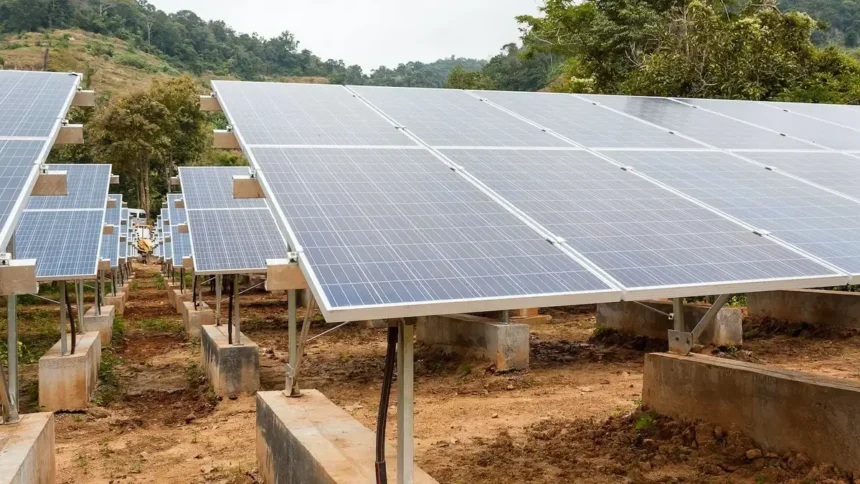The Nigerian government is making moves to expand access to electricity through renewable energy, particularly solar power. Recently, the federal government, via the Rural Electrification Agency (REA), signed important agreements with several renewable energy companies under the Nigeria Electrification Project (NEP). The initiative aims to provide electricity to underserved communities across the country, focusing on areas that lack reliable power sources.
The NEP, which was launched in 2018 with support from the World Bank and the African Development Bank, is designed to tackle the energy crisis in Nigeria. It specifically targets households, small businesses, and educational institutions that are not connected to the national grid. The project plans to electrify one million homes within five years using solar energy solutions. This ambitious goal is supported by a combination of Performance Based Grants (PBG) and Output Based Funds (OBF), which will help facilitate the deployment of solar home systems and mini-grids.
During a recent event in Abuja, representatives from seven renewable energy companies gathered to sign grant agreements that will enable them to play a crucial role in this electrification effort. These companies include A4&T Integrated Services, ASOLAR Systems, Txtlight Power Solutions, and others. With these grants, they will work on projects that aim to provide clean and affordable electricity to approximately 300,000 homes and 30,000 local businesses.
The head of the mini-grids component at REA expressed confidence that this partnership would attract both local and international investors into Nigeria’s renewable energy sector. The government’s commitment to leveraging renewable technologies is seen as a vital step towards achieving sustainable energy access for all Nigerians. The Managing Director of REA also highlighted the importance of the financial backing received from international organizations, which totals around $550 million. This funding will be instrumental in connecting schools and communities to reliable electricity.
HAVE YOU READ? Green Climate Fund Grants $28M for Rwanda’s Sustainable Green City Kigali
One of the key aspects of this initiative is its focus on community engagement. The NEP emphasizes consulting with local populations to understand their specific energy needs and preferences. By involving communities in the planning process, the project aims to ensure that the solutions implemented are tailored to meet local requirements effectively.
Solar power is particularly well-suited for Nigeria due to its vast sunny regions. The country has immense potential for solar energy generation, especially in rural areas where traditional power infrastructure is lacking. Solar home systems and mini-grids are becoming increasingly popular as effective solutions for providing electricity to millions of Nigerians who previously had no access.
As Nigeria continues to invest in renewable energy projects, it is also addressing challenges such as raising awareness about the benefits of solar power and building local capacities for installation and maintenance. Training programs are being developed to equip individuals with the necessary skills to support this growing sector.
In conclusion, Nigeria’s push towards renewable energy represents a promising shift in its approach to solving long-standing energy issues. With strategic partnerships and substantial financial backing, the country is well on its way to achieving its goal of providing reliable electricity to millions of people. This initiative not only aims to improve living standards but also contributes significantly towards a more sustainable future for Nigeria. As these projects unfold, they could serve as a model for other nations facing similar energy challenges.




